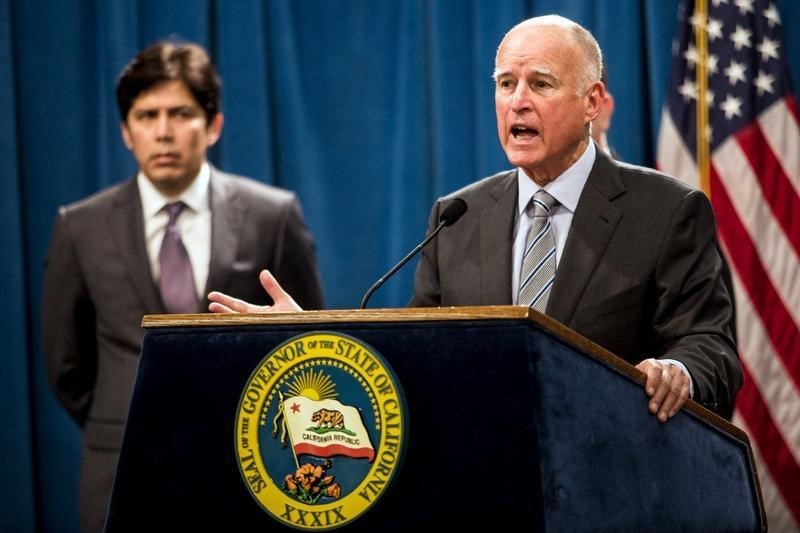SACRAMENTO, Calif. (Reuters) - California Governor Jerry Brown signed a $115.4 billion budget package on Wednesday in a compromise with the Democratically controlled legislature that expands some social programs but holds back on funding for others.
Brown, a fiscally moderate Democrat, has successfully pushed lawmakers to hold back spending despite improvement in California's financial situation, arguing that state's cyclical economy is subject to dramatic and often unexpected drops.
"This is a sound, well thought-out budget," Brown said. "Yet, the work never ends and in the coming months we'll have to manage our resources with the utmost prudence."
The budget includes a new tax credit to help the working poor in California, modeled on the federal earned income tax credit, worth $380 million.
It spends $68.4 billion on public schools and community colleges, up from $66.3 billion last year, and also provides $40 million to expand the state's Medi-Cal healthcare program for the poor to cover low-income children who are undocumented immigrants.
An increase in funding for services for people with disabilities was dropped from the package under threat of a line-item veto from Brown.
The plan, which goes into effect when the state's fiscal year begins July 1, pays down more than $7 billion in debt and puts about $2 billion into the state's rainy day fund.
Brown has called a special session to address concerns that the state will need to find new revenues to pay for healthcare programs following changes in federal law. Another special session will consider ways to fund the state's transportation infrastructure.
